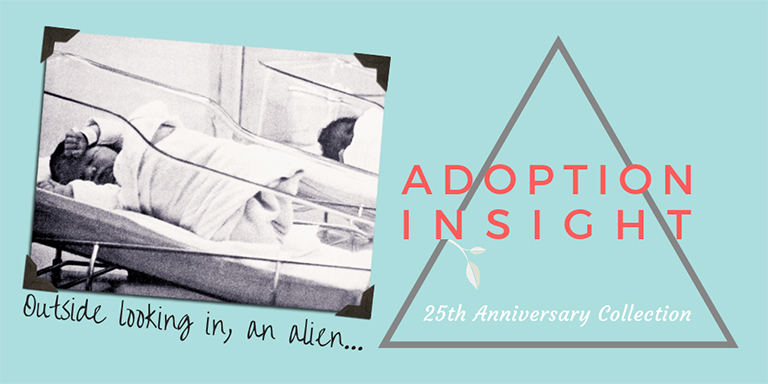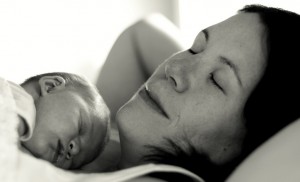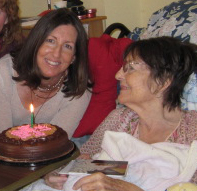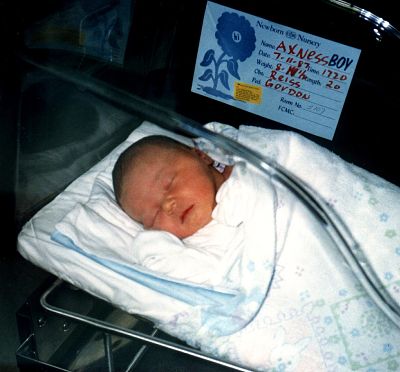
I had originally intended to post a different article “for my birthday” this year, but this one raised its hand and spoke to me loudly. This one, this day, feels alive and real and timeless.
Twenty years ago I wrote the following essay to serve as a prelude in Jane Guttman’s powerful 1999 book, The Gift Wrapped in Sorrow. In her book, Jane chronicled the pain, surrender and healing she had experienced as a birthmother. In her introduction to my essay, Jane wrote, “In the course of writing this book I have become intimately related to the pain of adoption. But I can only truly know my pain. It has been of the utmost importance to me to also become aware of what it feels like to be surrendered. I believe it is essential to include an impression of that experience as well.”
I’ve been aware these many decades that many adoptees get sad around their birthday. Some therapists see this as an “anniversary reaction”—irritability, sadness, anxiety, depression, or less-defined, unsettling feelings that occur at the anniversary of a traumatic experience. (The whole issue of newborn separation as a trauma that is rememberable is another topic, discussed elsewhere.)
That was never me. Yes, I was separated from my biological mother right at birth, and yes, I spent six days in the hospital nursery before going to my adoptive home. But I have always loved my birthday, who knows why.
(more…)

 As I contemplate the 23rd anniversary of my daughter’s birth this week, my thoughts go back to the oh-so-tender moments surrounding birth. How powerful they are, for mothers and for babies. (And for fathers, but that’s for another day!) How imprints from these moments can mark us lifelong.
As I contemplate the 23rd anniversary of my daughter’s birth this week, my thoughts go back to the oh-so-tender moments surrounding birth. How powerful they are, for mothers and for babies. (And for fathers, but that’s for another day!) How imprints from these moments can mark us lifelong. Before getting my degree and writing Parenting for Peace, my previous body of work explored the psychological and social issues in adoption. Understanding how adoption is unique can help bring healing and wholeness to everyone involved. Last weekend, as I basked in Hawaii’s soothing trade winds and the wisdom being shared at the Mid-Pacific Conference on Birth & Primal Health Research, I was inspired by the uniquely Hawaiian concepts of hanai and ‘ohana. These have to do with family connections that expand and expand, without anyone losing one’s own history.
Before getting my degree and writing Parenting for Peace, my previous body of work explored the psychological and social issues in adoption. Understanding how adoption is unique can help bring healing and wholeness to everyone involved. Last weekend, as I basked in Hawaii’s soothing trade winds and the wisdom being shared at the Mid-Pacific Conference on Birth & Primal Health Research, I was inspired by the uniquely Hawaiian concepts of hanai and ‘ohana. These have to do with family connections that expand and expand, without anyone losing one’s own history. 

